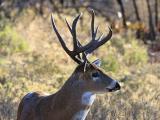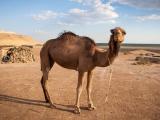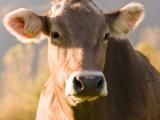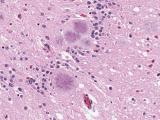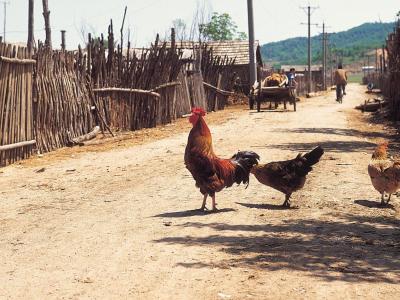Sep 18, 2007 (CIDRAP News) Two months from now, the US Department of Agriculture (USDA) plans to open the US border to older Canadian cattle and beef for the first time since bovine spongiform encephalopathy (BSE), or mad cow disease, emerged in Canada in 2003.
Following through on plans announced in January, the USDA said last week it would lift the restriction on older cattle and beef, along with certain other cattle parts, on Nov 19.
The agency banned all imports of Canadian cattle and beef when Canada found its first case of BSE in May 2003. The border was reopened to Canadian cattle and beef under 30 months of age in 2005, but the ban remained on older cattle and beef. BSE is considered very unlikely to be found in cattle younger than 30 months because of its long incubation period.
Specifically, the new USDA rule will allow importation of:
- Live cattle and other bovines, such as bison, born on or after Mar 1, 1999, the date USDA considers the start of effective enforcement of Canada's ban on putting cattle protein into cattle feed. Both Canada and the United States banned that practice in 1997 because it is believed to spread the BSE agent.
- Meat and meat products from cattle older than 30 months, provided "specified risk materials" (SRM) are removed first. SRM are parts likely to contain the BSE agent if the animal has the disease, such as the brain, spinal cord, eyes, tonsils, and certain nerve bundles.
- Blood and blood products from cattle
- Cattle-derived casings and part of the small intestine
Current restrictions on imported sheep and goats and on rendered protein will remain, Dr. John Clifford, USDA chief veterinary officer, said at a Sep 14 news conference.
Cindy Smith, administrator of the USDA's Animal and Plant Health Inspection Service (APHIS), said at the news conference, "We are confident in taking this important step to normalize cattle trade with Canada, while continuing to protect the health of the US cattle population. It is an integral part of our efforts to promote fair trade practices, consistent with international guidelines."
Officially, the USDA plan is to expand the list of allowable imports from any country recognized as posing a "minimal risk" of introducing BSE into the US. So far, Canada is the only country in the "minimal risk" category.
Following guidelines from the World Organization for Animal Health (OIE), the USDA conducted a formal risk assessment before proposing in January to reopen the border to older cattle. The assessment indicated that if BSE in Canada declines or stays the same over the next 20 years, the risk that BSE would enter and spread within the United States was negligible. Officials estimated the prevalence of BSE in Canada at 6.8 cases per 10 million adult cattle.
After unveiling the proposal in January, the agency took public comments and also arranged for an external peer review. All the peer reviewers agreed with the conclusion of the risk assessment, but APHIS incorporated several clarifications and updates suggested by the reviewers, Clifford said at the press conference.
As a result of public comments about the difficulty of verifying the ages of older cattle, US officials reduced their estimate of the number of older Canadian cattle that will be imported into the United States for slaughter from 650,000 per year to 75,000 per year, Clifford reported. However, he said the estimate of the overall number of imported cattle over the next 20 years stayed essentially the same.
When the USDA published its January proposal, Canada had had nine native BSE cases, but two more have been found since then, Clifford noted. The addition of those two cases to the risk assessment model did not change the estimated prevalence of BSE in Canada or the conclusion that the risk of BSE spreading in the United States is negligible, he said.
See also:
Sep 14 USDA news release
Jan 5 CIDRAP News story "US wants to end BSE-linked ban on older Canadian cattle"
http://www.cidrap.umn.edu/cidrap/content/other/bse/news/jan0507imports.html
